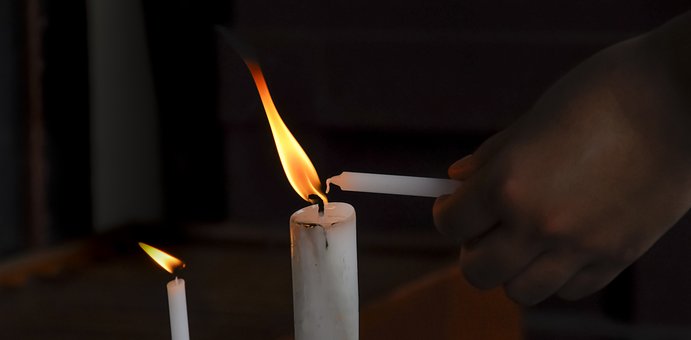BUENOS AIRES: Fouad Bousetouane, executive director at the Research Center for Artificial Intelligence of the American company Grainger and a rising star in AI, continues to shine in his chosen field.
The Algerian, who at just 35 years old will chair the first international congress on artificial intelligence in January, has agreed to discuss his career and his future projects with Arab News in French.
From an early age, Fouad Bensetouane knows what he is destined for. Supported by parents who nurtured his scientific and cultural curiosity, he entered the Koranic school in Annaba, where he was very early attracted by the scientific aspect of spirituality.
It was from there that his passion for astronomy, the stars and the functioning of celestial objects grew exponentially.
In primary school, he chose English as a second language, which allowed him to have a wider choice of scientific works. There he developed an increased interest in robotics and the functioning of the human brain.
At the time, the young man explained that his perception of mathematics was becoming “more mature”. Among the authors who influenced his thinking, writers, scientists and philosophers.
He reads the scientific works of Alan Turing and devours the books of the writer Isaac Asimov whom he considers to be a visionary.
“The way Asimov has of predicting the future, of trying to give such a high abstraction to the definition of robotics, a robot that dreams, a robot that develops emotions inspired me”.
These readings motivate the research of the young, almost self-taught bachelor. The young man explains that he invested in himself in order to sharpen his objective vision and his thinking process.
For this, Bousetouane also turns to philosophy, he quotes among others the Algerian thinker Malek Bennabi; “He is one of the few writers with the ability to convert intellectual social concepts into mathematical equations”.
“Mathematics is the engineering of philosophy”
During his graduate studies, the one who does not yet have his license, returns to his childhood passion and converts his defense project into a scientific article on the use of artificial intelligence for the analysis of satellite data.
Asked about possible areas for improvement in this area of research in the Maghreb, Bousetouane’s response is nuanced.
The researcher with multiple patents believes that the redirection of teaching towards English is an asset insofar as mastering this language allows access to more in-depth data in many scientific disciplines.
And to add “in the long term, we must create an ecosystem that values excellence and competence. And this, by drawing inspiration from foreign educational models that value creativity and practice, in particular through educational workshops for young people to familiarize themselves with technology. The boundaries between research and engineering are minimal, practice becomes necessary”.
Empower young people
Fouad Bousetouane has demonstrated that AI, in particular pattern recognition, can help simplify life in several areas, however it must be approached with caution, even parsimony.
“The world will change. Parents must make their children responsible for the proper use of this technology,” explains the scientist.
“The Metaverse, for example, will immerse us in a virtual reality, which can be innovative in the field of education. Nevertheless, it is necessary to know how to find the balance in this use, because the abusive immersion in these virtual worlds can contribute to the development of mental disorders in the young generation”.
In this regard, the official is keen to ensure that there is a whole legislation around the use of this technology, affirming that governments are increasingly looking at the need to ensure this balance between the technology which is becoming ubiquitous and the values of society.
“The objective of researchers has never been to create uncontrollable machines. We don’t give 100% autonomy to a machine, even if we could,” he comments.
However, these restrictions on advanced technologies can be detrimental to the progress made by researchers who are trying to put in place “software that has a positive impact in our daily lives, such as software that would detect cancer at an early stage”, laments Fouad Bousetouane.
An ambitious congress
Concerning the international congress which will take place in January in Hawaii, Dr. Bousetouane reiterated his desire to export these new technologies to the rest of the world.
To succeed in democratizing artificial intelligence, the bet for Bousetouane is to invest in a process of knowledge transfer towards simple models that can be used by all.
“We are developing very complex software, which requires a huge investment that only companies such as Amazon or Nvidia can afford. For example, for a model composed of 175 billion parameters, it is necessary to invest 10 million dollars”.
Thus, this will make it possible to transfer the knowledge learned by its large models and “distill” them to embed them in very simple models which will cost a few hundred dollars to be used in medical, social, etc. applications.
“This challenge remains technical, we have been working to make it a reality for more than a year,” concluded Fouad Bousetouane.
This event will see the presence of artificial intelligence technology giants such as Grainger, Amazon, Google, Intel, and Nvidia.
Although he has come a long way for which he is recognized in his community, the Chicago-based Bonois who is at the origin of this initiative is only at the beginning of a career that promises to be promising.
Algeria: Fouad Bousetouane, a journey to the top in the world of artificial intelligence

